The Mobile CPU Core-Count Debate: Analyzing The Real World
by Andrei Frumusanu on September 1, 2015 8:00 AM EST- Posted in
- Smartphones
- CPUs
- Mobile
- SoCs
Chrome - BBC Frontpage
The little core data doesn't look much different than what we saw on the AnandTech frontpage. The little cores see a consistent high load, with a fairly large peak towards the main rendering phase of the page.
Chrome again seems to cause the system to spawn more threads than what the little cluster can accomodate.
The big cores also behave similarly to what we saw on the AnandTech front-page. There's a consistant load of a single large thread with some bursts where up to all 4 CPUs are doing some processing.
The total run-queue depths for the system again confirm what we saw in the previous scenario: Chrome is able to consistently make use of a large amount of threads, so that we see use of up to 6 CPUs with small bursts of up to almost 9 threads.
What is interesting about the Chrome results is that most of the threads are placed on the little cores, meaning we have a large amount of small threads. Because the migration mechanisms of HMP don't migrate threads below a certain performance threshold, this causes some oversaturation of the little CPU cluster.
This is an interesting implication for non-heterogeneous 8 core designs such as seen from MediaTek. In such a scenario having 8 little cores at more or less the same performance capacity would indeed make quite some sense. It's again MediaTek's X20 design with 2 clusters of 4 cores and a cluster of 2 high performance cores which comes to mind when looking at these results, as I can't help but think that this would be a use-case which would make perfect sense for that SoC.


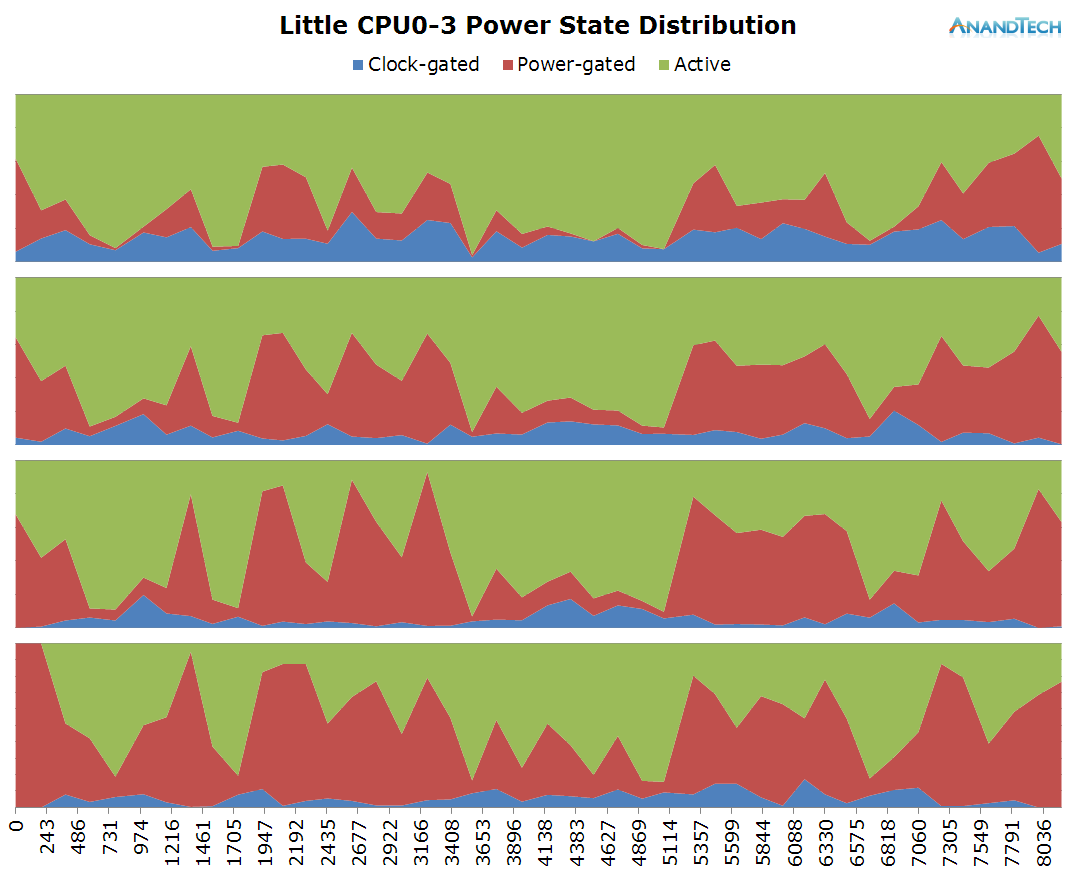
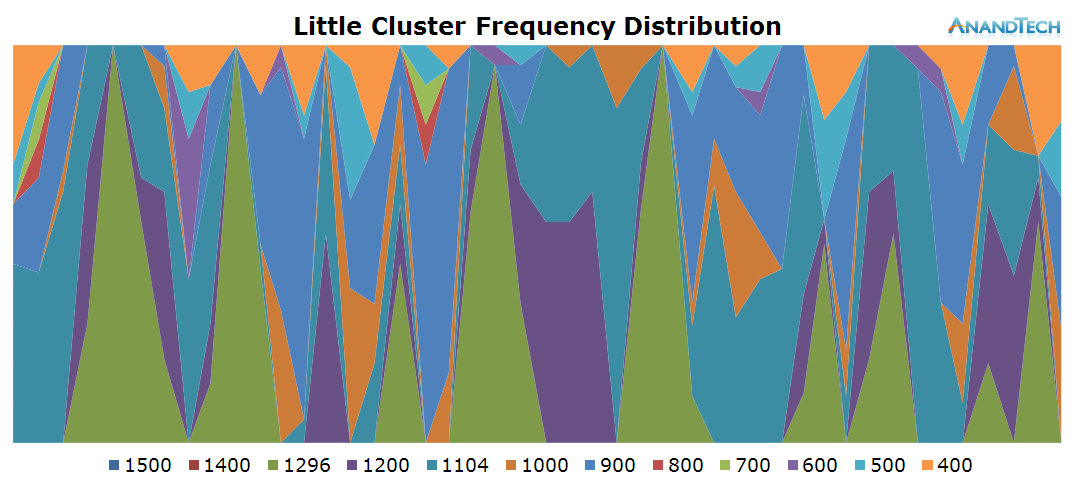
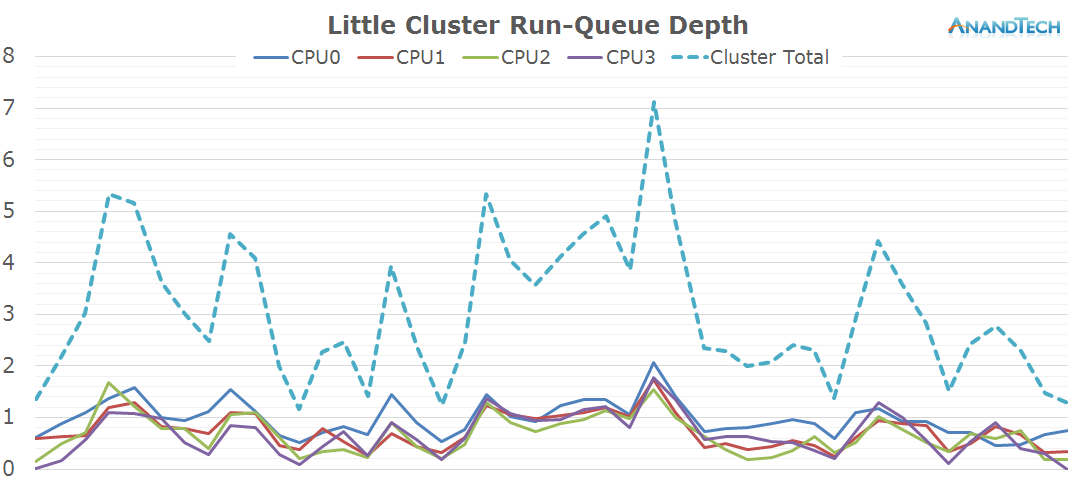
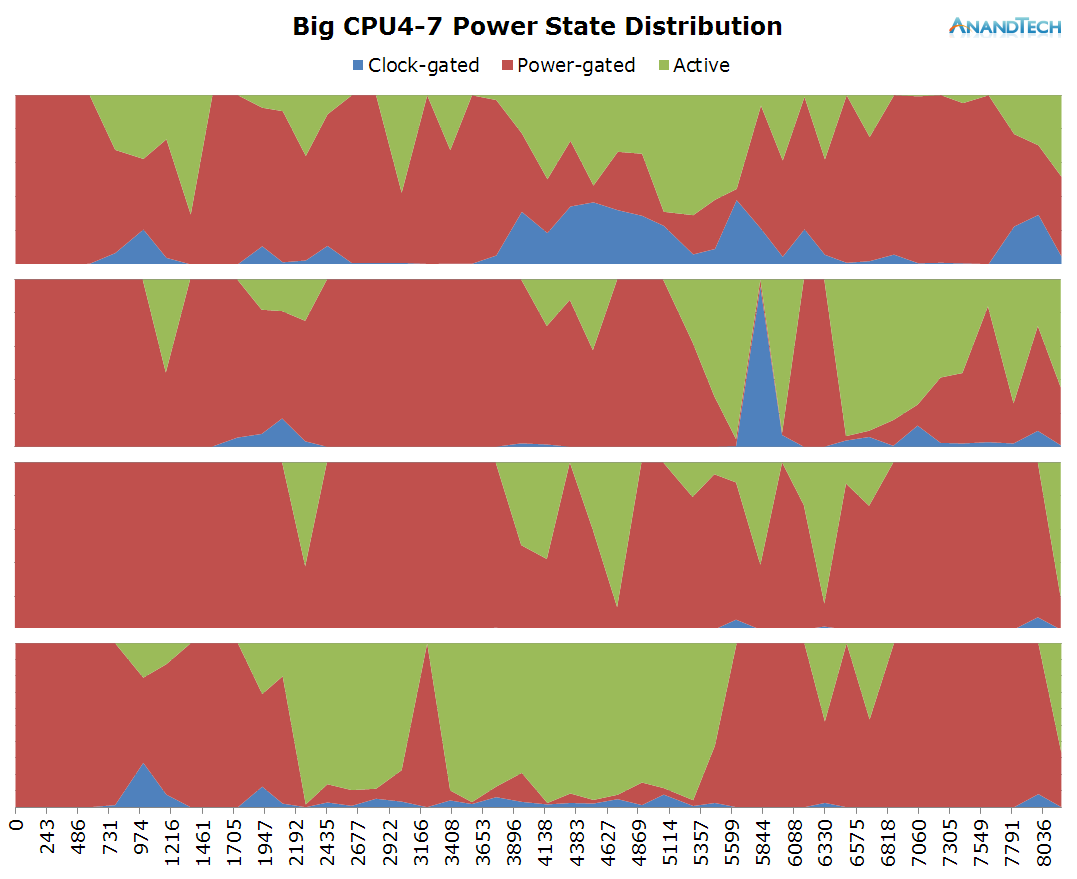
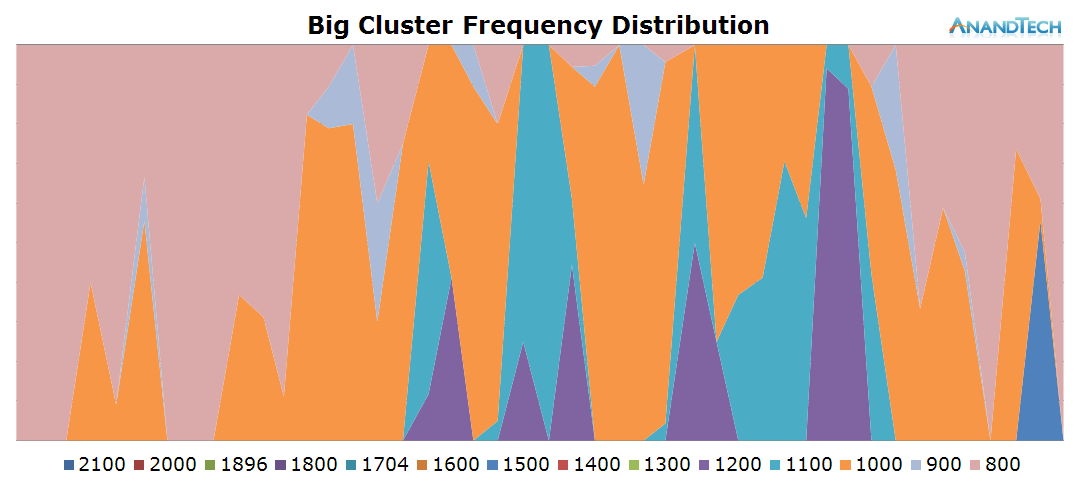
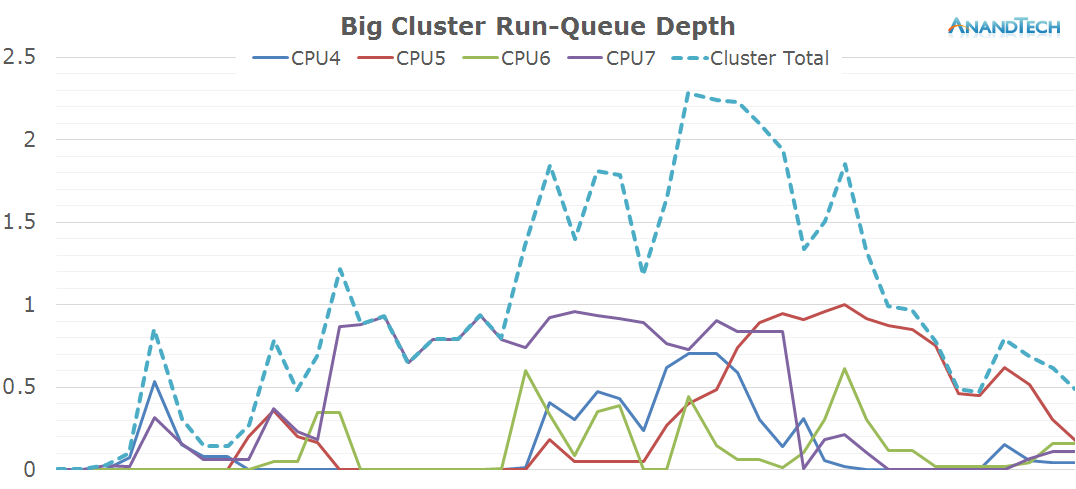
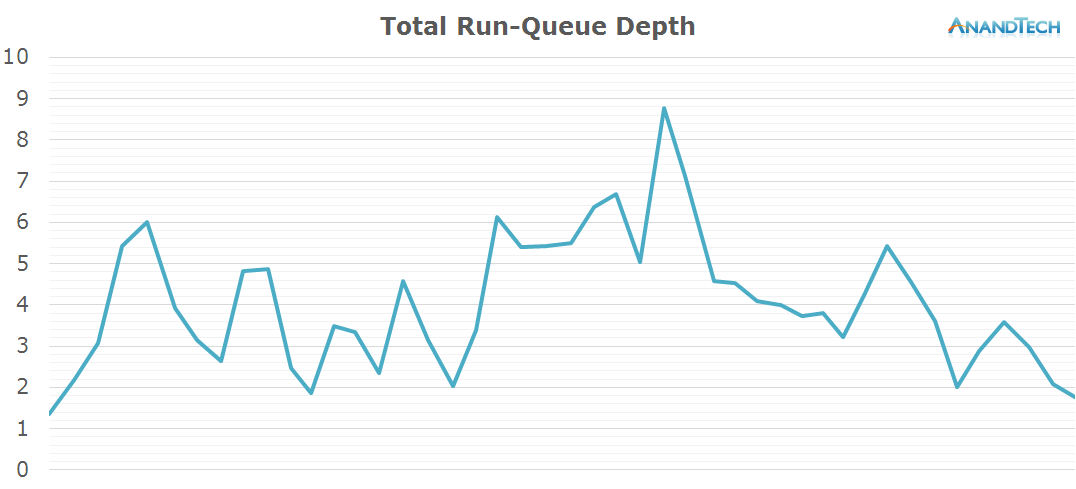








157 Comments
View All Comments
lilmoe - Tuesday, September 1, 2015 - link
"if the interest is high enough":/ Really?
zaza - Saturday, September 5, 2015 - link
Yes Please. It would be nice to see if the same or similar tests works on snaprdagon 810,801 and 615 and Mediatek chips, and intel SoCerchni - Thursday, September 17, 2015 - link
A follow-up with synthetic would be quite interesting.aryonoco - Saturday, September 5, 2015 - link
I just wanted to reiterate the point here an thank the author for this great piece of technical investigative journalism.Andrei, thank you for this work. It is hugely invaluable and insightful.
tipoo - Tuesday, September 1, 2015 - link
Very interesting article. Seems like the mantra of "more cores on mobile are just marketing" was wrong in terms of Android, seems to dip into both four core big and little clusters pretty well. That puts the single thread performance having lagged behind the Apple A series (up until the S6 at least) in a new light, since it can in fact use the full multicore performance.tipoo - Tuesday, September 1, 2015 - link
*That is, barring gaming. More core Android functions do well with multithreading though.jjj - Tuesday, September 1, 2015 - link
In gaming there is a big advantage. By using mostly the small cores you allow for more TDP to go to the GPU. One more relevant thing would console ports in the next couple of years when mobile GPUs will catch up with consoles. The current consoles have 8 small cores and that fits just right with many small cores in Android.retrospooty - Tuesday, September 1, 2015 - link
Not really sure whos "mantra" that was. People that don't understand what the big.little architecture is like some angry Apple fans?tipoo - Tuesday, September 1, 2015 - link
Well sure, whoever they were, but it was a pretty common refrain for every 8 core SoC.soccerballtux - Tuesday, September 1, 2015 - link
for one, it was my mantra. I liked having 4 cores because 2 wasn't enough, but according to my hotplugging times, I only really need 3 for optimal experience most of the time